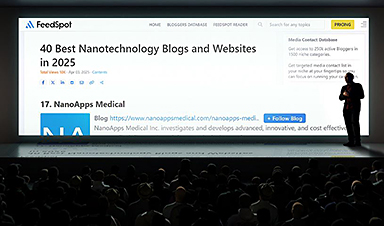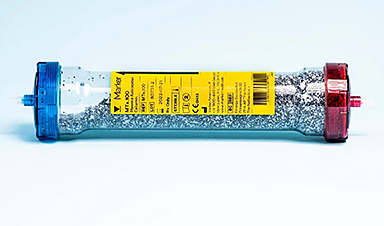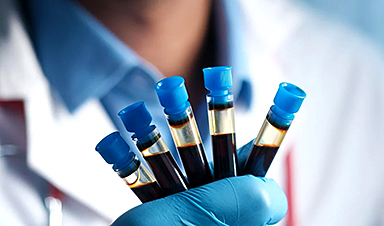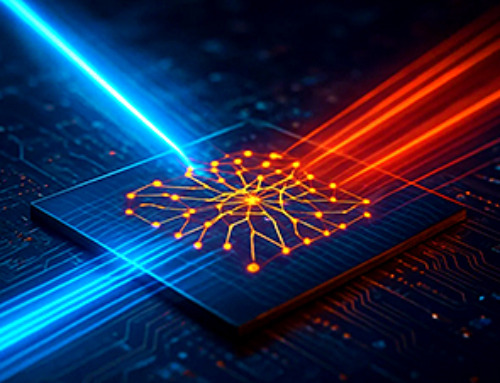Medical technologies such as electronic devices implanted or injected into the human body are the next growth area for hackers pursuing money or control of individual people. With nanotechnology implants already being used for some medical treatments, advances in their application could pose as great a cybersecurity threat as what faces the Internet of Things, experts say.
Security professionals have begun to confront the problem of biomechanical hacking. Two years ago, health care giant Johnson & Johnson warned that one type of its insulin pumps could be hacked. The company encouraged users to avoid employing the device’s remote-control feature and to program the pump to limit its maximum dose. And last year, the U.S. Food and Drug Administration ordered the recall of nearly half a million pacemakers over hacking fears. A firmware update was needed to patch security holes in the devices.
But these threats are relatively simple compared with the potential for malicious cyber activity within the human body. New biomechanical technologies coming into use are far more sophisticated, and far more vulnerable, than single-function devices such as pacemakers and insulin pumps. Medicine sits on the cusp of introducing nanosystems into the human body that could revolutionize treatment and recovery, according to health journals. These particles, which measure 10-9 microns, or 1 nanometer, will be able to perform a variety of functions, either singularly or in groups. But, as electronic devices, they could be hacked by outsiders.
These innovative nanoparticles are not being introduced with sufficient security, says Gregory Carpenter, a certified information security manager (CISM) and a self-described cyber imagineer. A former military intelligence and cyber expert with the U.S. Army and the National Security Agency, Carpenter has written several books and articles on technology and the cybersecurity threat. “[Biomechanical] security is probably the last thing to be put in place at a very high level,” he charges. “There is rudimentary security in several different deployments of that technology in some universities in the United States. But I would say the same level of security is not acknowledged as necessary in different places around the world because [advanced nanomedicine] is only in the research phase right now.
“As new nanoparticles come out, you’ll see autonomous processors in nanoparticles, which will be in contact with a client—a laptop, desktop computer or tablet that is going to be run by a server. So, there’s always a link, and if you can hack it, you can own it,” he declares.
Image Credit: Shutterstock
News This Week
5 Key Facts About Nanoplastics and How They Affect the Human Body
Nanoplastics are typically defined as plastic particles smaller than 1000 nanometers. These particles are increasingly being detected in human tissues: they can bypass biological barriers, accumulate in organs, and may influence health in ways [...]
Measles Is Back: Doctors Warn of Dangerous Surge Across the U.S.
Parents are encouraged to contact their pediatrician if their child has been exposed to measles or is showing symptoms. Pediatric infectious disease experts are emphasizing the critical importance of measles vaccination, as the highly [...]
AI at the Speed of Light: How Silicon Photonics Are Reinventing Hardware
A cutting-edge AI acceleration platform powered by light rather than electricity could revolutionize how AI is trained and deployed. Using photonic integrated circuits made from advanced III-V semiconductors, researchers have developed a system that vastly [...]
A Grain of Brain, 523 Million Synapses, Most Complicated Neuroscience Experiment Ever Attempted
A team of over 150 scientists has achieved what once seemed impossible: a complete wiring and activity map of a tiny section of a mammalian brain. This feat, part of the MICrONS Project, rivals [...]
The Secret “Radar” Bacteria Use To Outsmart Their Enemies
A chemical radar allows bacteria to sense and eliminate predators. Investigating how microorganisms communicate deepens our understanding of the complex ecological interactions that shape our environment is an area of key focus for the [...]
Psychologists explore ethical issues associated with human-AI relationships
It's becoming increasingly commonplace for people to develop intimate, long-term relationships with artificial intelligence (AI) technologies. At their extreme, people have "married" their AI companions in non-legally binding ceremonies, and at least two people [...]
When You Lose Weight, Where Does It Actually Go?
Most health professionals lack a clear understanding of how body fat is lost, often subscribing to misconceptions like fat converting to energy or muscle. The truth is, fat is actually broken down into carbon [...]
How Everyday Plastics Quietly Turn Into DNA-Damaging Nanoparticles
The same unique structure that makes plastic so versatile also makes it susceptible to breaking down into harmful micro- and nanoscale particles. The world is saturated with trillions of microscopic and nanoscopic plastic particles, some smaller [...]
AI Outperforms Physicians in Real-World Urgent Care Decisions, Study Finds
The study, conducted at the virtual urgent care clinic Cedars-Sinai Connect in LA, compared recommendations given in about 500 visits of adult patients with relatively common symptoms – respiratory, urinary, eye, vaginal and dental. [...]
Challenging the Big Bang: A Multi-Singularity Origin for the Universe
In a study published in the journal Classical and Quantum Gravity, Dr. Richard Lieu, a physics professor at The University of Alabama in Huntsville (UAH), which is a part of The University of Alabama System, suggests that [...]
New drug restores vision by regenerating retinal nerves
Vision is one of the most crucial human senses, yet over 300 million people worldwide are at risk of vision loss due to various retinal diseases. While recent advancements in retinal disease treatments have [...]
Shingles vaccine cuts dementia risk by 20%, new study shows
A shingles shot may do more than prevent rash — it could help shield the aging brain from dementia, according to a landmark study using real-world data from the UK. A routine vaccine could [...]
AI Predicts Sudden Cardiac Arrest Days Before It Strikes
AI can now predict deadly heart arrhythmias up to two weeks in advance, potentially transforming cardiac care. Artificial intelligence could play a key role in preventing many cases of sudden cardiac death, according to [...]
NanoApps Medical is a Top 20 Feedspot Nanotech Blog
There is an ocean of Nanotechnology news published every day. Feedspot saves us a lot of time and we recommend it. We have been using it since 2018. Feedspot is a freemium online RSS [...]
This Startup Says It Can Clean Your Blood of Microplastics
This is a non-exhaustive list of places microplastics have been found: Mount Everest, the Mariana Trench, Antarctic snow, clouds, plankton, turtles, whales, cattle, birds, tap water, beer, salt, human placentas, semen, breast milk, feces, testicles, [...]
New Blood Test Detects Alzheimer’s and Tracks Its Progression With 92% Accuracy
The new test could help identify which patients are most likely to benefit from new Alzheimer’s drugs. A newly developed blood test for Alzheimer’s disease not only helps confirm the presence of the condition but also [...]






















Leave A Comment